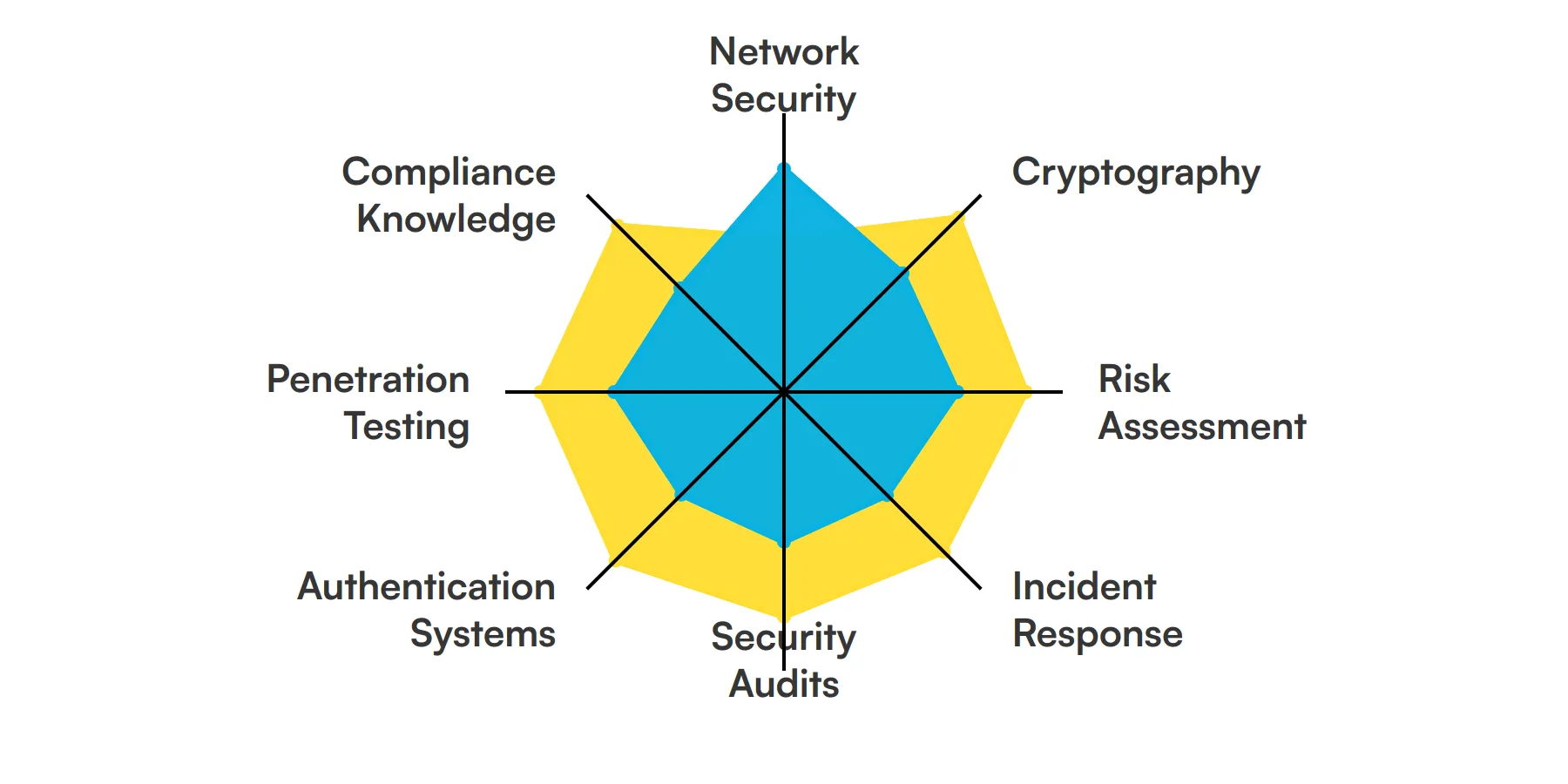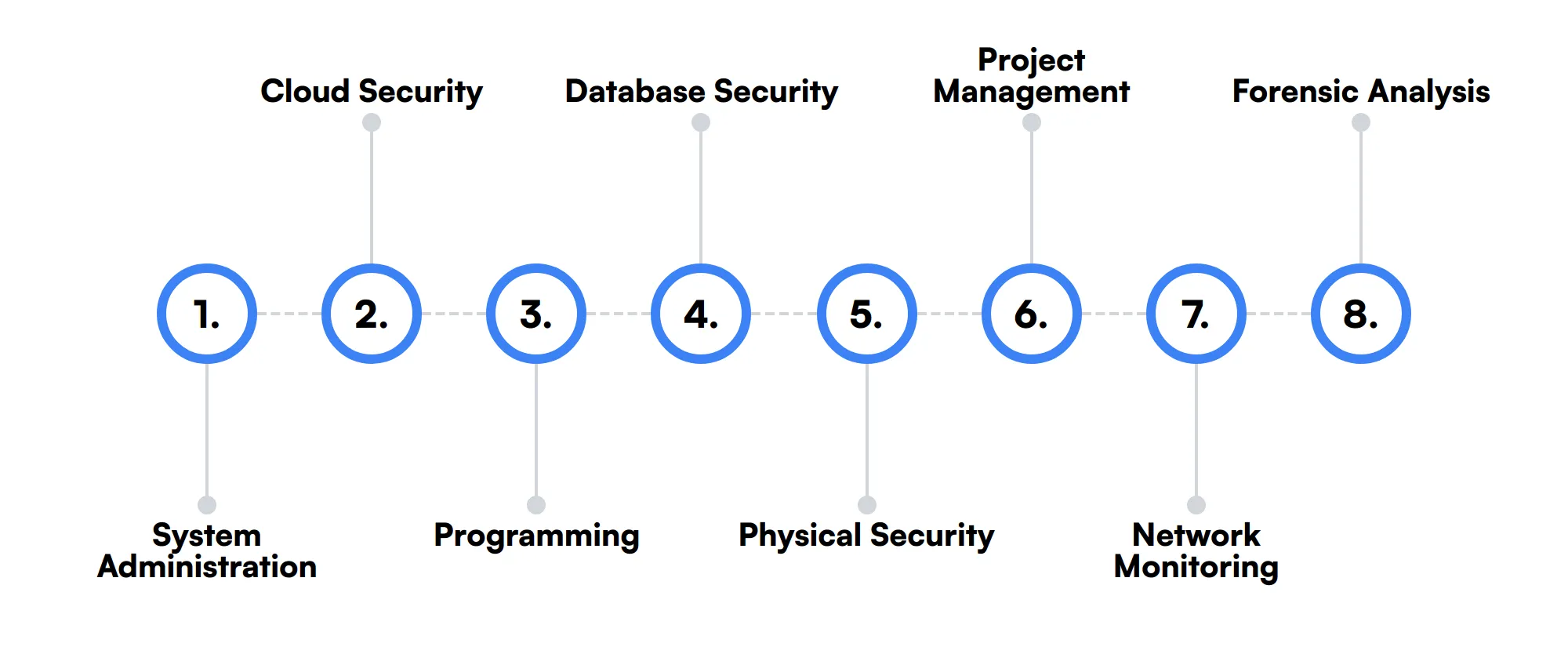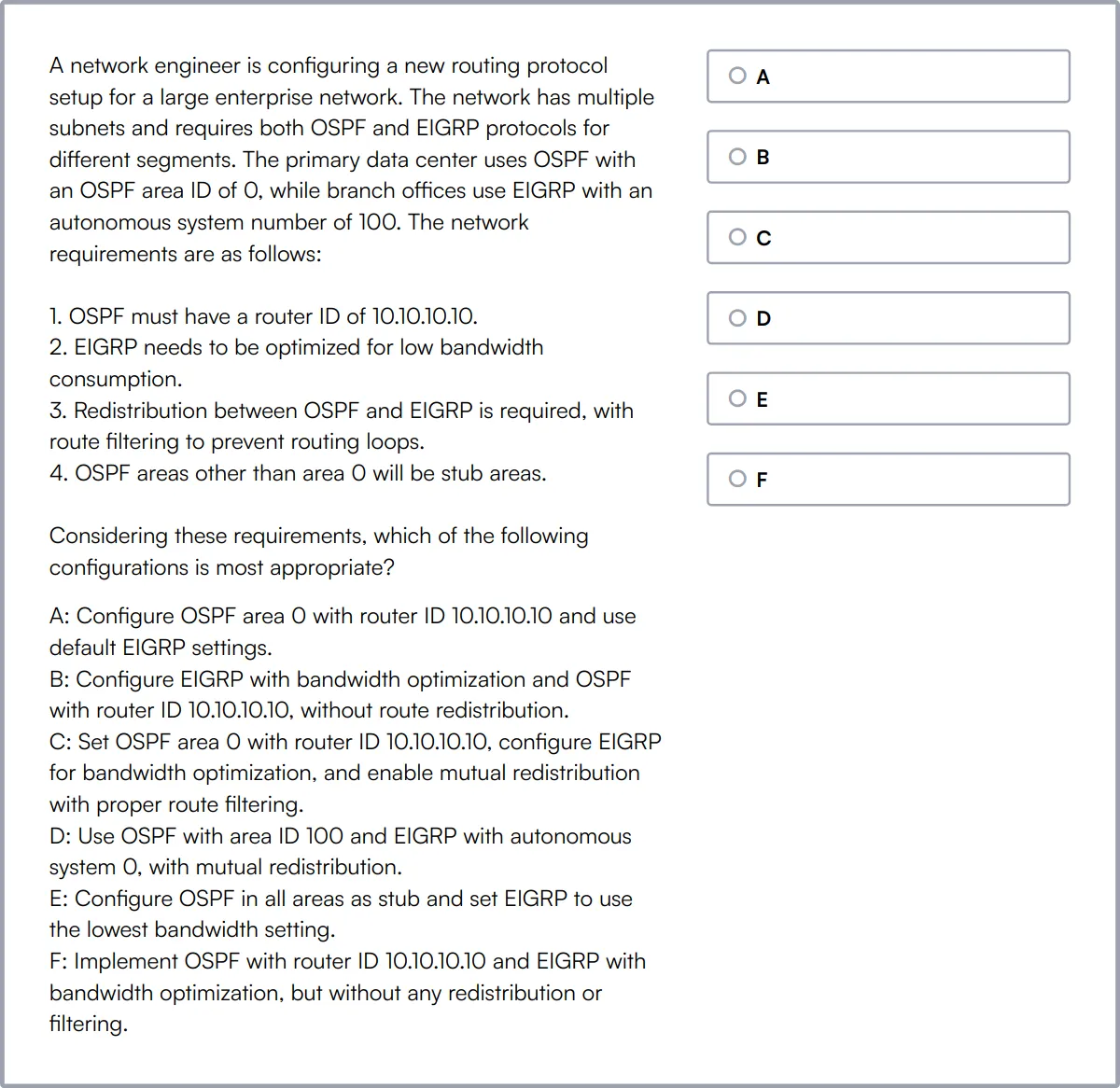System Security Engineers are the guardians of an organization's digital assets. They ensure that systems are protected from cyber threats, maintaining the integrity, confidentiality, and availability of data.
System Security Engineers need a mix of technical and analytical skills. They must be proficient in areas like network security, encryption, and risk management, as well as possess strong problem-solving abilities and attention to detail.
Candidates can write these abilities in their resumes, but you can’t verify them without on-the-job System Security Engineer skill tests.
In this post, we will explore 8 essential System Security Engineer skills, 8 secondary skills and how to assess them so you can make informed hiring decisions.
Table of contents
8 fundamental System Security Engineer skills and traits
The best skills for System Security Engineers include Network Security, Cryptography, Risk Assessment, Incident Response, Security Audits, Authentication Systems, Penetration Testing and Compliance Knowledge.
Let’s dive into the details by examining the 8 essential skills of a System Security Engineer.

Network Security
Network security is fundamental for a System Security Engineer, involving the protection of data flowing through a network by preventing breaches and attacks. This skill requires understanding various network protocols and configuring firewalls and intrusion detection systems to safeguard information.
For more insights, check out our guide to writing a Network Engineer Job Description.
Cryptography
Cryptography is used by System Security Engineers to secure communication between systems and protect data integrity. Mastery of cryptographic protocols and the ability to implement secure encryption methods are necessary to prevent unauthorized access and data leaks.
Risk Assessment
Risk assessment allows System Security Engineers to identify, evaluate, and prioritize risks to an organization's infrastructure. This skill is crucial for developing strategies to mitigate potential threats and ensure system resilience against various types of cyber attacks.
Incident Response
Incident response is a critical skill for System Security Engineers, focusing on how to react swiftly to security breaches. It involves planning and executing a sequence of actions to minimize damage and recover from the incident, as well as documenting the lessons learned to prevent future occurrences.
Security Audits
Conducting security audits involves a thorough examination and evaluation of all security measures within an organization. System Security Engineers use this skill to identify vulnerabilities and non-compliance with security policies, ensuring that the infrastructure adheres to legal and regulatory standards.
Authentication Systems
Authentication systems are crucial for verifying user identities and managing access control. System Security Engineers need to be adept at implementing and managing secure authentication protocols, such as multi-factor authentication, to protect against unauthorized access.
Check out our guide for a comprehensive list of interview questions.
Penetration Testing
Penetration testing is a proactive approach used by System Security Engineers to identify vulnerabilities in a system before attackers can exploit them. This involves simulating cyber attacks to test the effectiveness of security measures and improve them based on the test results.
Compliance Knowledge
Understanding compliance is essential for System Security Engineers to ensure that systems adhere to industry standards and regulations. This skill involves staying updated with compliance requirements like GDPR, HIPAA, and ensuring systems are configured to meet these standards.
8 secondary System Security Engineer skills and traits
The best skills for System Security Engineers include System Administration, Cloud Security, Programming, Database Security, Physical Security, Project Management, Network Monitoring and Forensic Analysis.
Let’s dive into the details by examining the 8 secondary skills of a System Security Engineer.

System Administration
System administration skills help System Security Engineers manage and configure software, hardware, and networks efficiently, ensuring they are optimized for security and performance.
Cloud Security
With the rise of cloud computing, knowledge of cloud security best practices and tools is important for protecting data stored online from theft, leakage, and deletion.
Programming
Programming skills enable System Security Engineers to write scripts and automate security tasks, such as log analysis and alerting, enhancing system protection through customization.
Database Security
Protecting databases from unauthorized access and attacks is a key skill, involving the encryption of data at rest, implementing secure access controls, and regularly auditing database activities.
Physical Security
Understanding physical security measures is beneficial for protecting the hardware and infrastructure that support IT systems, including server rooms and data centers.
Project Management
Project management skills help System Security Engineers to lead security projects, coordinate with different teams, manage timelines, and ensure that security enhancements are implemented effectively.
Network Monitoring
Skills in network monitoring are important for continuously observing system performance and detecting anomalies that could indicate security incidents, helping in early detection and response.
Forensic Analysis
Forensic analysis skills are useful for investigating and diagnosing breaches and other security incidents, helping to understand how an attack happened and preventing future incidents.
How to assess System Security Engineer skills and traits
Assessing the skills and traits of a System Security Engineer can be a challenging task, given the wide range of expertise required in this field. From network security to penetration testing, a System Security Engineer must be proficient in various domains to effectively safeguard an organization's digital assets.
Traditional resumes and certifications may not provide a complete picture of a candidate's abilities. To truly understand their competencies, skills-based assessments are essential. These assessments can help you evaluate their knowledge in areas like cryptography, risk assessment, and incident response.
For a more streamlined and accurate evaluation process, consider using Adaface on-the-job skill tests. These tests can help you achieve a 2x improved quality of hires and an 85% reduction in screening time. By focusing on real-world scenarios, Adaface assessments ensure that you find the best fit for your System Security Engineer role.
Let’s look at how to assess System Security Engineer skills with these 3 talent assessments.
CISCO Security Online Test
Our CISCO Security Online Test evaluates candidates on their proficiency with Cisco's network security products and solutions. It focuses on real-world scenarios to test understanding and application of network security principles using Cisco technologies.
The test assesses knowledge in areas such as CISCO Firewall, VPN, and intrusion prevention systems. It also covers security policies, access control, and identity management, providing a comprehensive evaluation of a candidate's ability to secure networks using Cisco's tools.
Candidates who perform well on this test demonstrate a strong ability to design and implement secure network architectures, effectively use Cisco security appliances, and adhere to best security practices.

Cryptography Test
Our Cryptography Test measures a candidate's understanding of cryptography, including the use of algorithms like RSA and techniques such as hashing and digital signatures.
This test evaluates the candidate's ability to apply cryptography concepts in network engineering and cyber security, focusing on encryption, decryption, and secure communication methods.
High-scoring individuals in this test are proficient in securing data and communications, understanding the complexities of cryptographic protocols, and implementing them effectively in various security scenarios.
Penetration Testing Test
Our Penetration Testing Test assesses a candidate's skills in identifying and exploiting vulnerabilities within network security and web applications.
The test challenges candidates with scenarios in ethical hacking, vulnerability assessment, and network security, requiring them to demonstrate practical knowledge in securing systems against potential threats.
Successful candidates will show adeptness in conducting thorough penetration tests, suggesting effective security enhancements, and understanding the ethical implications of hacking.
Summary: The 8 key System Security Engineer skills and how to test for them
| System Security Engineer skill | How to assess them |
|---|---|
| 1. Network Security | Evaluate a candidate's ability to protect data across networked computers. |
| 2. Cryptography | Assess understanding and application of encryption and decryption techniques. |
| 3. Risk Assessment | Check how well a candidate identifies and evaluates security risks. |
| 4. Incident Response | Review skills in managing and mitigating security breaches or threats. |
| 5. Security Audits | Determine ability to conduct thorough examinations of security systems. |
| 6. Authentication Systems | Gauge expertise in creating and managing secure user authentication protocols. |
| 7. Penetration Testing | Test a candidate's skills in simulating cyber attacks to find vulnerabilities. |
| 8. Compliance Knowledge | Verify knowledge of legal and regulatory information security standards. |
Linux System Administrator Online Test
System Security Engineer skills FAQs
What skills are necessary for a System Security Engineer?
System Security Engineers should be proficient in network security, cryptography, risk assessment, and incident response. They also need to understand security audits, authentication systems, and penetration testing. Knowledge in compliance, system administration, cloud security, programming, database security, physical security, project management, network monitoring, and forensic analysis is also important.
How can recruiters assess a candidate's expertise in network security?
Recruiters can assess network security expertise by asking candidates to describe past projects, scenarios they've managed, or challenges they've overcome. Additionally, practical tests or case studies during the interview process can provide insight into the candidate's hands-on abilities.
What are the best ways to evaluate a candidate's skills in cryptography?
Evaluating a candidate's skills in cryptography can be done through technical interviews that include problem-solving questions related to algorithm design, encryption techniques, and security protocols. Reviewing certifications or courses completed in this area can also be beneficial.
Why is knowledge of compliance important for System Security Engineers?
Compliance knowledge is important because System Security Engineers must ensure that systems adhere to legal and regulatory requirements. This minimizes legal risks and protects organizational data from breaches, thus maintaining trust and integrity in the systems managed.
How important is programming for a System Security Engineer?
Programming is important for System Security Engineers as it helps in automating security solutions, developing custom security tools, and understanding potential vulnerabilities in software. Proficiency in languages like Python, Java, or C++ can be particularly beneficial.
What role does project management play in the System Security Engineer's responsibilities?
Project management skills enable System Security Engineers to plan, execute, and monitor security projects effectively. This includes managing resources, timelines, and ensuring that all aspects of the security plan align with organizational goals.
How can a recruiter test a candidate's ability in risk assessment during an interview?
Recruiters can test a candidate's risk assessment ability by presenting hypothetical scenarios that require identifying potential threats, evaluating the risks, and proposing mitigation strategies. This can reveal the candidate's analytical skills and their approach to proactive security management.
What is the significance of cloud security knowledge for today's System Security Engineers?
With many organizations moving to cloud-based solutions, knowledge of cloud security is crucial. It involves securing data across online-based infrastructure, platforms, and applications, and is key to protecting assets in a scalable and dynamic environment.

40 min skill tests.
No trick questions.
Accurate shortlisting.
We make it easy for you to find the best candidates in your pipeline with a 40 min skills test.
Try for freeRelated posts
Free resources



